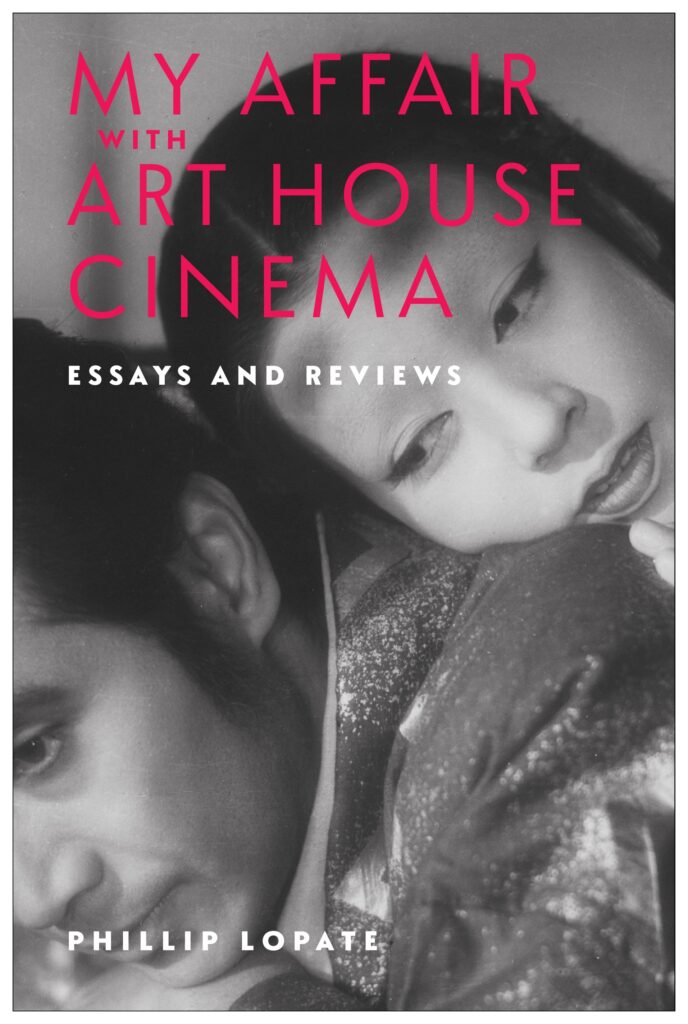Critic Philip Lopate, With Inviting Brio and Gentle Insistence, Celebrates ‘Art House Cinema’
His criticism is, dare one say it, adult.

‘My Affair with Art House Cinema; Essays and Reviews’
By Philip Lopate
Columbia University Press, 416 pages
About a third of the way into “My Affair with Art House Cinema; Essays and Reviews,” a noted essayist, novelist, and poet, Phillip Lopate, writes about the John Ford film “The Sun Shines Bright” (1953). Though some observers place it high among Ford’s movies, Mr. Lopate considers it “good but not great.” Still, he uses it as an opportunity to mull the director’s relationship with the American South.
Among Ford’s first jobs in Hollywood, he notes, was as an extra playing a member of the Ku Klux Klan in D.W. Griffith’s “The Birth of a Nation” (1915). “I don’t want to make too much of this curious fact,” Mr. Lopate cautions, “only to say that there is a direct link between Griffith’s whitewashing, ennobling treatment of the South . . . and Ford’s sympathy for the defeated region.” A point is made that the characters played by John Wayne in a number of Ford Westerns were disappointed Confederate soldiers.
Mr. Lopate then considers the comedic actor Stepin Fetchit, a supporting player in “The Sun Shines Bright” and how the figure he cuts is “grotesquely clownish, yet . . . [he] kept making astute remarks from behind a mask of obsequiousness.” Mr. Lopate does the requisite hand-wringing when considering the racial caricaturing upon which Fetchit made a career. He questions Ford’s South, “a place that would have had no use for me.” Still, he can’t help but be “deeply satisfied” by this fault-ridden artifact.
The persuasive power of art is a complicated phenomenon. It is prone to elisions of personal taste, frustrating moral dichotomies and, should we be so lucky, deep-seated pleasures. As a critic, Mr. Lopate has (as he notes of the director Alain Resnais) a “realistic appreciation of and tolerance of humanity’s flaws.”

His criticism is, dare one say it, adult. Though politics does inflect his writings, he has no ax to grind. Mr. Lopate knows that ideology can be an impediment to aesthetic reward. He glances on this fact with a gentle insistence over the course of some 400 pages.
“My Affair with Art House Cinema” compiles essays, articles and appreciations culled from a variety of sources, including Film Comment, The Criterion Collection, the New York Times, the New York Review of Books and the Normal School, a now defunct scholarly journal that originated, like “a comfy spore in a benign and mighty lung,” at the University of California, Fresno.
The book is a follow-up to “Totally, Tenderly, Tragically: Essays and Criticism from a Lifelong Love Affair with the Movies” (1998), a compendium that had previously gone undetected by this critic’s radar.
Don’t let the current volume’s academic imprimatur, Columbia University Press, or its emphasis on the artier precincts of cinema-going put you off. Mr. Lopate’s prose is delicious to read. Though he does betray a weakness for awkward adverbs — is “fragilely” really a word? I hope not — Mr. Lopate writes with an inviting brio, shaping complicated suppositions with a fluidity that doesn’t call attention to itself. Jargon is beyond his ken.
An elitist in terms of artistic predilections, our author is not a snob. About his relative indifference to pop culture, he writes that “one can only be interested in so many things at a time.” Nor are his opinions necessarily set in stone: his take on a film can be altered by any number of things — his daughter, “the offerings of a slow afternoon’s TV schedule” and, most decisively, the passage of time. Mr. Lopate is open to contrary opinions, but steadfast in his tastes.
“My Affair with Art House Cinema” is, in significant part, devoted to foreign films, a subject about which Mr. Lopate proves remarkably conversant. A chapter is devoted to the Serbian filmmaker Dušan Makavejev, a figure with whom the author struck up a friendship that was later tested by Mr. Lopate’s role as a member of the selection committee at the New York Film Festival.
As someone who has always kept Makavejev’s provocations at arm’s length — his best known film “W.R.: Mysteries of the Organism” (1971) is, at best, an avant-gardist ragbag — I’m tempted to revisit the oeuvre because of Mr. Lopate’s by no means uncritical ministrations.
Other auteurs under consideration include Carl Dreyer, Hang Sang-Soo, Kenji Mizoguchi, Ernst Lubitsch and Dino Risi, whose “Il Sorpasso” (1962) is an unsung staple of Italian comedy. A section of the book, its “intermission,” is devoted to documentaries and there are chapters included on the craft of art criticism, with incisive essays on Manny Farber, Pauline Kael and Roger Ebert.
As for his faith as a cineaste, Mr. Lopate states that the movies offer a “priceless record of intelligence, beauty, behavioral complexity, anguish, and desire.” And then he goes ahead and forever endears himself to this critic by ending the book by paraphrasing a key line from the original “Planet of the Apes” (1968). “My Affair with Art House Cinema” is a welcome addition to the warm live hands of thinking movie-goers everywhere.

